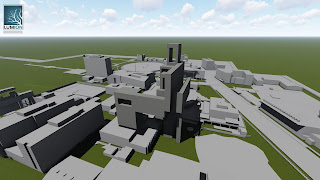Theory:
http://elsaseysan.blogspot.com.au/2017/05/news-article.html
18 Sketch Perspectives:
one point perspectives:
http://elsaseysan.blogspot.com.au/2017/05/blog-post.html
two point perspectives:
http://elsaseysan.blogspot.com.au/2017/05/two-point-perspectives.html
36 Textures:
http://elsaseysan.blogspot.com.au/2017/06/36-textures.html
Progress:
http://elsaseysan.blogspot.com.au/2017/06/progress-with-model.html
Sketchup Model including Two Moving Elements:
http://elsaseysan.blogspot.com.au/2017/06/sketchup-model-with-moving-elements.html
Real Time Images showing draft Lumion Environments:
http://elsaseysan.blogspot.com.au/2017/05/progress-on-sketchuplumion.html
http://elsaseysan.blogspot.com.au/2017/06/4-real-time-image-captures-of-draft.html
Real Time Image captures of Developed and Final Lumion Environments:
http://elsaseysan.blogspot.com.au/2017/06/5-real-time-images-of-developed-model.html
http://elsaseysan.blogspot.com.au/2017/06/developed-bridge-with-textures.html
Link to Fully Developed Lumion Environment:
https://www.dropbox.com/s/zpowztqjrow0b65/ARCH1101_EXP3_ELSA%20SEYSAN.ls7?dl=0
Thursday, 22 June 2017
Developed Bridge with Textures
Theory: There are no limits to what a space can accommodate. A reconfiguration of elements can push spacial boundaries yet maintain a sense of harmony.
The open spaces are defined by different elements and shapes that all come together to form an outdoor transitional area.
The textures are able to define the paths that intersect in order to create circulation around the central block.
There are no boundaries within the bridge, the bridge's paths are defined by their materiality.
The bridge extends amongst four different zones, the squarehouse, roundhouse and along the intersection of Anzac Pde and the main walkway. The configuration of the bridge creates a sense of rhythm and harmony along it's four extended edges.
There are no limits to define the space, the composition of intersecting walkways and overhangs create a coordinated composition of a bridge.
Developed Lumion Environment
Link to Dropbox:
https://www.dropbox.com/s/zpowztqjrow0b65/ARCH1101_EXP3_ELSA%20SEYSAN.ls7?dl=0
https://www.dropbox.com/s/zpowztqjrow0b65/ARCH1101_EXP3_ELSA%20SEYSAN.ls7?dl=0
Bridge with Moving Elements
Moving Elements:
Yellow = Wooden Roof Overhang
The yellow roof acts as a shading device, blocking out the sun in areas where people would be travelling to one from side of the school to another. It moves horizontally along a black path, as seen in the diagram in order to cover different areas of ground throughout the day. This element provides shade yet allows for the space to be free-flowing as it hovers above the ground floor of the school.
Blue: Glass Wind Shield
The glass acts as a wind shield in order to block out excessive breezes. The vertex of the wind shield is not fixed, it moves along the red path in order to concentrate on where the wind is coming from at specific times of the day. The material is chosen as glass in order to let in the light from the sun and the transparency of it fits with the appearance of the building, creating a sense of harmony.
More Images:
Wednesday, 24 May 2017
Wednesday, 17 May 2017
news article
link to news article: http://www.architecturaldigest.com/story/the-9-best-new-university-buildings-around-the-world
key words:
accomodate
space fluctuate
boundary-pushing
reconfigured
theory:
There are no limits to what a space can accommodate. A reconfiguration of elements can push spacial boundaries yet maintain a sense of harmony.
one point perspectives
top left: seeing the zone (eye level)
top middle: soaring blocks (above eye level)
top right: underwater blocks (below eye level)
middle left: blocks and mass (eye level)
middle middle: larger from above (above eye level)
middle right: appear large from under (below eye level)
bottom left: intersecting crosses (eye level)
bottom middle: complexity in numbers (above eye level)
bottom right: more is less (below eye level)
top left: doubling objects (eye level)
top middle: intertwined at one (above eye level)
top right: no symmetry (below eye level)
middle left: circle of squares (eye level)
middle middle: reaching far beyond (above eye level)
middle right: surreal from afar (below eye level)
bottom left: robotic and rigid (eye level)
bottom middle: zoning out and across (above eye level)
bottom right: angle of no height (below eye level)
Sunday, 30 April 2017
EXP 2 SUBMISSION
2 CONCEPTS:
18 AXONOMETRICS:
36 CUSTOM TEXTURES:
5 REAL TIME IMAGES IN LUMION ENVIRONMENT:
LUMION FILE:
The Concepts
Vo Trong Nghia
Concept: Dissolve the distinction between the interior and exterior
Within VoTrong Nghia's architecture, the boundaries between interior and exterior spaces are blurred as he demonstrates how nature and the outside world can be implemented within interior private spaces. Similarly, I have utilised this concept in my work as there is no distinct space between interior and exterior. The overhanging, curved roof creates an open space that allows people to experience the open nature of the environment.
Carlo Scarpa
Concept: Complexity meets simplicity
Carlo Scarpa's architecture appears simple however he has carefully followed a complex approach in his work to express the importance of detail. In his work, it is evident that large and simple architecture can have very complex findings. In my work, i have been inspired by this complex and incorporated it in the textures. The textures from a far appear to be of a single colour, but up close they consist of fine-lines that make up detailed patterns and these textured surfaces enhance the atmosphere of the tram stop.
The Architecture in Lumion
Landscape image capture
Interior and exterior spaces are blurred as the roof overhang leaves an open space
Curved surface on the left has complex detailed textures, hard to tell from a distance and appears to be simple
Wednesday, 26 April 2017
Subscribe to:
Comments (Atom)



















































